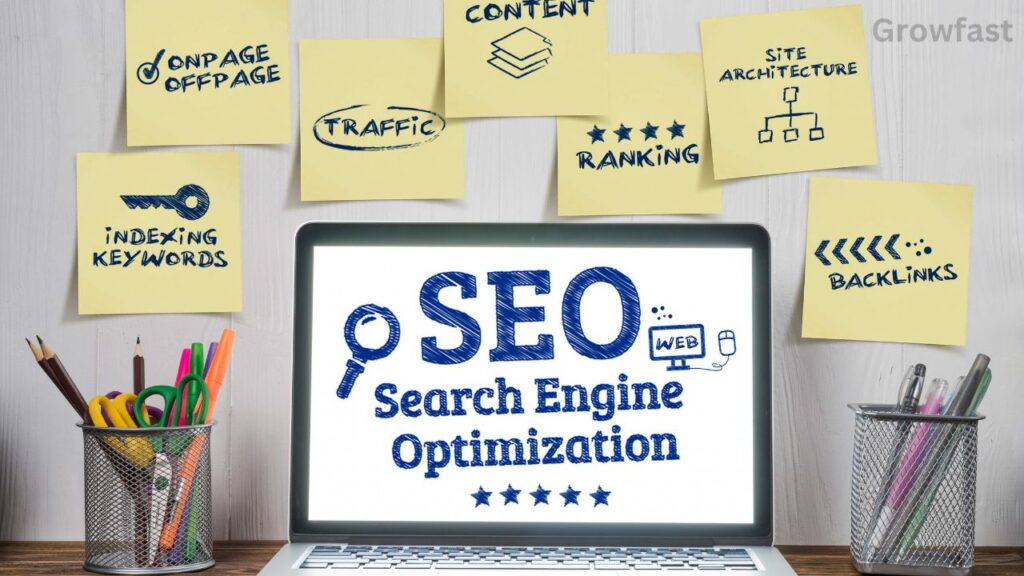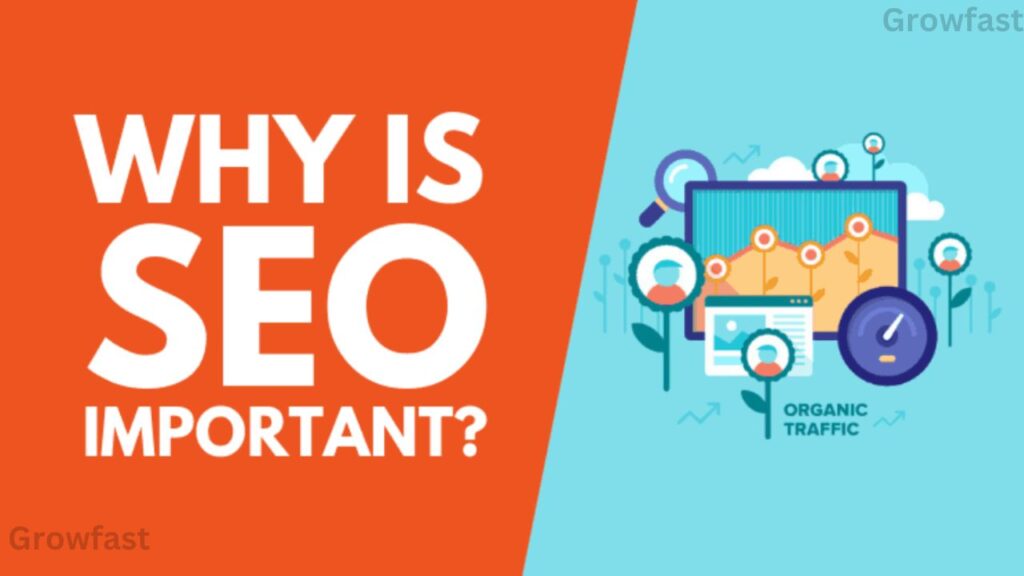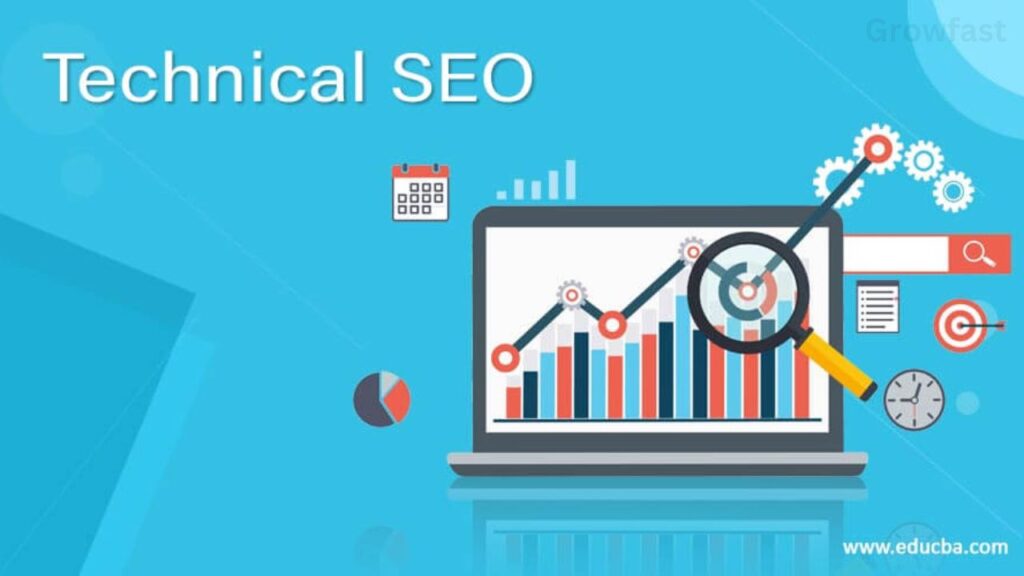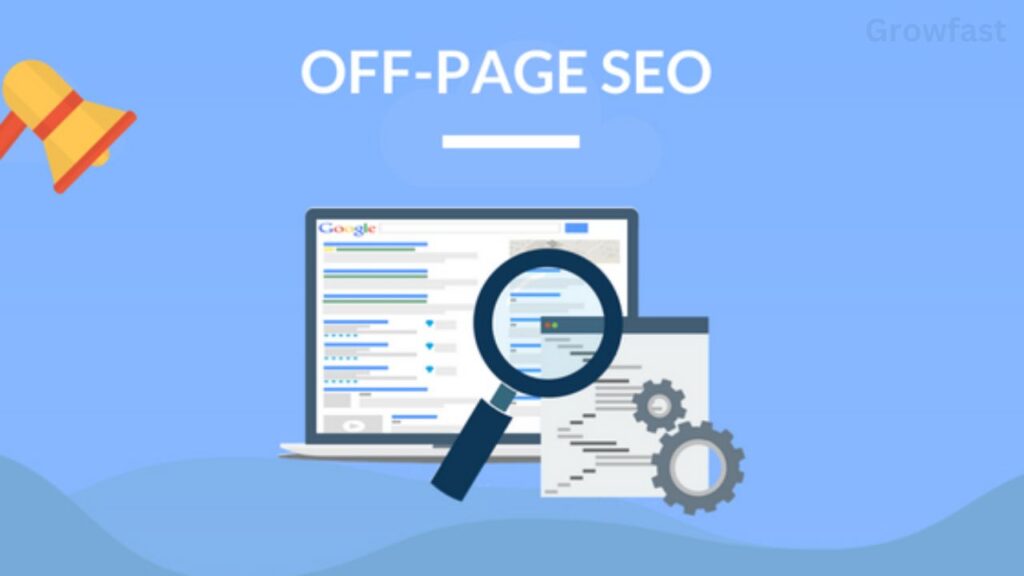
What is Search Engine Optimization (SEO)?
Have you ever wondered why certain websites show up on Google when you search for something like “funny dog videos” or “how to bake cookies”? This happens because of something called Search Engine Optimization (SEO). Search Engine Optimization is a technique used to help search engines like Google, Bing, and Yahoo find websites
Search Engine Optimization Meaning
SEO is like a secret recipe that makes a website more attractive to search engines. When a website uses SEO, it makes it easier for search engines to find and show up at the top of the list when people search for something. This is super important because most people click on the first few links they see!
Why is Search Engine Optimization Important?

SEO is one of the most important marketing strategies. First, and foremost: organic search provides 53% of all website traffic.
That’s a big reason why the global SEO industry is predicted to reach a staggering $122.11 billion by 2028. SEO drives real business results for brands, businesses and organizations of all sizes.
Whenever people want to go somewhere, do something, find information, research or buy a product/service – their journey usually starts with a search.
But the search today is incredibly fragmented. Users can search through traditional web search engines (e.g., Google, Microsoft Bing), social platforms (e.g., YouTube, TikTok) or vendor websites (e.g., Amazon).
In fact, the U.S. 61% of consumers who shop online start their search on Amazon, compared to 49% who start with search engines like Google. It is also worth mentioning from the same study:
- 32% start with Walmart.com.
- 20% start on YouTube.
- 19% start with Facebook.
- 15% start on Instagram.
- 11% start on TikTok.
Billions are searched each year. Search is often the key to website traffic, making it important to be “search engine friendly” on any platform where people can find your brand or business
What this all means is that it can have a positive impact on your bottom line by improving your visibility, ranking you higher in search than your competition, .
SEO is also incredibly important because search engine results pages (or SERPs) are super competitive – full of search results (and PPC ads). SERP features include:
- Knowledge base.
- Specifications.
- Maps.
- Diagrams.
- Video.
- Top information (good news).
- People also ask.
- Carousel features.
Another reason SEO is important for brands and businesses: Unlike other marketing strategies, a good SEO job is consistent. When the paid campaign ends and.
Types of SEO

There are three types of SEO
- Technical SEO: Optimizing the technical aspects of the website.
- On-Page SEO: Optimizing content on a website for users and search engines.
- Off-Page SEO: Create brand assets (e.g., people, icons, values, vision, slogans, catchphrases, colors) and create content that will ultimately increase brand awareness and recognition (i.e., increase visibility and awareness, power , and credibility). f) and demand generation.
You have 100% control over content and technology changes. That’s not always true off-site (you can’t control links from other sites or if you rely on forums that eventually close or make major changes), but those activities are still SEO an important part of this triangle for success
Think of SEO as a sports team. You need a strong offense and defence to win – and you need fans (a.k.a., spectators). Think of technical optimization as your defence, content optimization as your offense, and off-site optimization as ways to attract, engage, and retain a loyal fanbase.
Technical Optimization

Optimizing the technical aspects of a website is important and essential for SEO success.
It all starts with architecture – we build a website that can be crawled and indexed by search engines. As Google trend analyst Gary Illis once said in a Reddit AMA: “MAKE THAT DAMN SITE CRAWLABLE.”
You want to make it easier for search engines to find and find all the content on your pages (i.e. text, images, videos). Here are the important technical components: URL structure, navigation, internal links, and more.
Experience is also an important factor in the efficiency of technical development. Search engines emphasize the importance of pages that load fast and provide a good user experience. Things like Core Web Vitals, mobile-friendliness and usability, HTTPS, and avoiding intrusion gaps are all important in technical SEO.
Another area of technological improvement is data structure (a.k.a., schema). Adding this code to your website will allow search engines to better understand your content and improve your appearance in search results.
In addition, web hosting services, CMS (content management system) and site security all play a role in SEO.
On Page SEO

SEO requires your content to be optimized for two main audiences: people and search engines. This means optimizing the content that your audience sees (what’s actually on the page) and what search engines see (the code).
The goal, always, is to post helpful, high-quality content. You can do this in addition to understanding your audience’s wants and needs, data and guidance provided by Google.
When optimizing content for people, you need to make sure that:
Related topics in which you have experience or expertise.
Includes keywords that people use to search for content.
is unique or original.
It is well written and free of grammatical and spelling mistakes.
It is up-to-date and accurate.
Includes multimedia (e.g. images, video).
Your SERP is better than competitors.
Readable – Organized so that the information you share is easy for people to understand (consider: use subheadings, paragraph length, capital/bold fonts, formatted/unformatted characters, reading rate , and so on).
Some key internal optimizations for search engines include:
The title of the essay
Meta description
Subject lines (H1-H6)
Image alt text
Open the graph and Twitter cards metadata
Off-page optimization

There are activities that may not be “SEO” in the strictest sense, but can nonetheless align with and help indirectly contribute to SEO success.
Link building (the process of getting links to a website) is the activity most closely associated with off-site SEO. Getting links pointing to your website from relevant, authentic, credible websites can have huge benefits (e.g., ranking, traffic) Link quality beats link quantity – and a large number of quality links is the goal the.
And how do you get those links? There are a number of website promotion strategies that align with SEO efforts. These include:
- Brand building and brand marketing: Strategies designed to increase recognition and popularity.
- PR: PR strategies designed to obtain editorially delivered links.
- Content marketing: Some popular formats include videos, ebooks, research studies, podcasts (or being a guest on other podcasts) and guest posts (or guest blogging).
- Social media marketing and optimization: Take your brand’s hand on any and all relevant platforms, optimize it fully and share relevant content.
- Content: Searching, viewing, and optimizing content where information about your company or website is listed and can be found by searchers (e.g., directories, review sites, wikis).
- Ratings and reviews: Get them, monitor them and give them feedback.
Typically, when you talk about outsourcing, you are talking about activities that will not directly affect your ability to just get a position in engineering
But, again, everything your brand does matters. You want people to be able to see you wherever your brand is. So some people are trying to rebrand it as “search engine optimization”.
The SEO Process: How Does SEO Work?
SEO isn’t magic—it’s a multi-step process:
- Finding the Right Keywords: Keywords are what people type into search engines. For example, if someone searches for “best places to eat pizza,” those words are keywords. The websites that want to show up in this search use those keywords in their posts.
- Quality: Search engines like websites with helpful, interesting, or interesting content. If your content answers questions, teaches something new, or is just fun to read, people will stay on your site longer and check the search engines!
- Get links from other websites: When other websites link to your site, it’s like giving a thumbs up or vote of confidence. The more votes your site receives, the more searches will occur.
- Making websites faster and easier: No one wants to wait for a slow website. Search engines want websites that are fast and easy to use. Plus, if your website looks great on phones and tablets, even better!
- Use SEO Tools: There are some basic tools that help with SEO, such as how your website is doing, finding the best keywords, and making sure everything is working properlySEO is like a secret kitchen it makes a website more attractive to search engines. When a website uses SEO, it makes it easier for search engines to find and show up at the top of the list when people search for something. This is super important because most people click on the first few links they see!
Imagine you have a really nice blog or online store, but no one can see it because it doesn’t show up in search results. That’s where SEO comes in. SEO helps your website stand out, so it can be seen and viewed by more people. This is also super important for businesses, as more visitors can mean more customers!
SEO and Digital Marketing
SEO is a huge part of digital marketing, which is all about promoting content online. While SEO focuses on driving search engines to your website, digital marketing includes things like social media, email, and online advertising. Together, they help companies achieve their goals through the Internet.
What to Look for in the Best SEO Agency
Sometimes companies hire experts to help with their SEO. These specialists are called SEO agencies. A good SEO company knows all the ways to get a website. They use the latest tools, stay abreast of changes in how search engines work, and are always focused on building great products.
The Importance of SEO
SEO is important because it is the main method of website visibility on the internet. If a business wants to grow, it needs visitors, and SEO helps bring those visitors in. It’s a “come see us!” campaign. period. without actually paying for advertising. Plus, good SEO can build trust because when people see a website at the top of their search, they think it’s the best option.
Final Thoughts
Search Engine Optimization (SEO) may seem a bit tricky, but it’s really just there to help websites get noticed. By using the right keywords, creating awesome content, getting links, and making sure everything runs smoothly, SEO helps websites reach the top of the search results. Whether you’re building a blog, a YouTube channel, or an online store, understanding SEO is an essential step to success in the online world!
